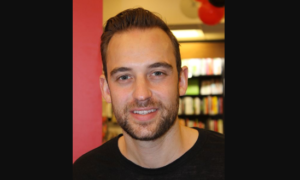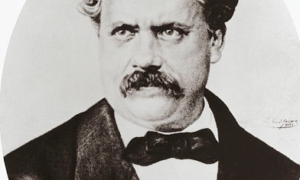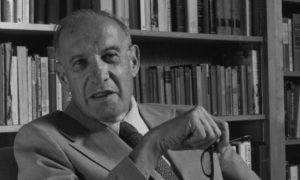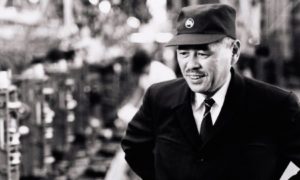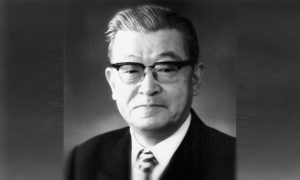Writer
Alfonsina Storni
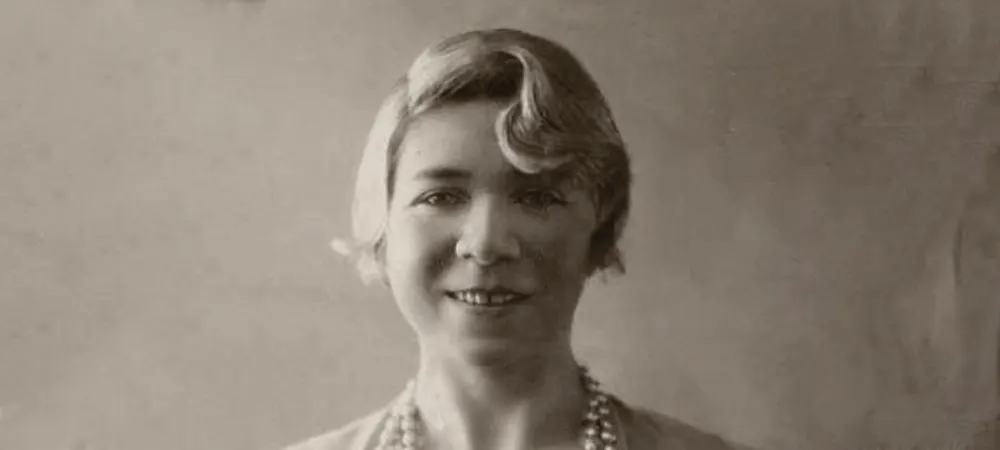
| Personal information | ||
|---|---|---|
| Full name | Alfonsina Carolina Storni Lopez Chavez | |
| Birthdate | May 29, 1892 | |
| Date of death | October 25, 1938 | |
| Cause of death | Suicide | |
| Occupation | Writer | |
| Nationality | Argentine | |
| Parents | Alfonso Storni | |
| Genders | Poetry | |
| Movements | Modernism | |
| Zodiac sign | Gemini | |
Biography of Alfonsina Storni
Alfonsina Storni was born in Capriasca, Switzerland on May 29, 1892, and is considered one of the great poets and writers of Argentine Modernism. Her verses stand out for their strong affirmation of the feminine perspective of the world, which allowed her to take a prominent place in the Hispanic-American literary scene. Together with Gabriela Mistral and Juana de Ibarbourou, her contemporaries, she formed the first wave of fighters for the recognition of women in American Literature.
Beginnings and family life
Alfonsina Storni was born as the third child of Alfonso Storni and Paulina Martignoni, in Capriasca, Switzerland. At four years old, the family decided to move to San Juan, Argentina, where after a few years, her brother Hildo was born. However, due to the precarious economic situation, the family moved to Rosario in 1901, where they opened a cafe to survive.
At 12 years old, Alfonsina wrote her first poem, focused on the theme of death, and left it under her mother’s pillow for her to read. Despite the scoldings received, her mother explained to her that life is sweet. Her father, who was depressive and alcoholic, passed away in 1906 and Alfonsina began working in a hat workshop. Her mother remarried and moved to Butinza, leaving Alfonsina in charge of her education and work. Despite the economic and family difficulties, Alfonsina continued writing poems and working on her literary development.
“I keep going round and round these streets; wherever I go, the silent walls follow me, and behind them, I vainly want to know if men die or dream.” Alfonsina Storni
Studies and early jobs of Alfonsina Storni
Alfonsina Storni moved to Coronda to study at the Magisterium and work as a school monitor. However, she soon realized that the money she had left after paying her rent was not enough to live on. So, she decided to make trips to Rosario to sing as a chorus girl in a small theater. Her family in Coronda found out about her job as a singer and Alfonsina, thinking about the social stigma, considered the idea of taking her own life. However, she abandoned this idea and the following year, in 1991, she obtained the title of teacher and worked that same fall in a school in Rosario.
Obra de Alfonsina Storni
Alfonsina Storni published her first verses in the magazines “Mundo Rosariano”, “Monos y Monadas” while going through her first love disappointment with an older and married man, who left her pregnant. Due to the shame this generated, she decided to seek refuge in Buenos Aires and gave birth to her son, Alejandro, in April 1912.
Later, she worked as a cashier in a store and collaborated in “Caras y Caretas” as a psychological correspondent. There, she wrote her first book of verses “La inquietud del rosal”, which was published thanks to the help of poet Felix B. Visillac, who was fascinated by her work.
From then on, her work was praised by the magazine “Nosotros” and she began to be known and admired in literary circles. However, her economic problems did not decrease. Later, she was appointed director of a school and wrote her second book “El dulce daño” while working there.
In March 1918, due to a nervous crisis, she was forced to leave her position as director and returned to literary circles, publishing her second poem collection and collaborating in “Atlántida” while returning to work as a school monitor in another school. In 1919, she published “Irremediablemente” and was praised by critics.
“The man who speaks ill of women, pleases the perverse, flatters the mediocre and repulses the dignified woman.” Alfonsina Storni
A year later, she was invited to give lectures at the University of Montevideo. That same year, she published “Languidez” and a chair was created for her at the Teatro Infantil Lavardén, where she began teaching children. As her fame grew, her neurotic behavior also worsened, so she decided to retire to Los Cocos on several occasions throughout her life.
After winning the First Municipal Prize for Poetry and the Second National Prize for Literature in 1922 for her work “Languidez”, the Minister of Public Instruction decided to create a chair for her at the National School of Living Languages a year later.
In 1925, she published “Ocre”, a poetry collection that marked her departure from modernism and had a high realistic content, and in 1926 she published “Poems of Love”. She continued to publish her work until 1927, when she premiered a play called “El amo del mundo” which was a failure and did not even last three days on the bill. However, this did not stop her from writing plays and in 1932 she published “Two Pyrotechnic Farces”.
In the 30s, she made two trips to Europe with her friend Blanca de la Vega, looking for a way to forget her mental problems. After returning from the last trip, she was diagnosed with a tumor in her breast which was successfully removed, but she had to continue with a painful radiation therapy that she decided to stop. Alfonsina Storni then withdrew and went out very rarely, spending her last years in fear of death.
On October 25, 1938, her body was found on the beach of La Perla, in Mar del Plata. She had achieved her goal of letting herself be embraced by the sea, taking her beyond her mortal existence. The next day, her last poem “Quiero dormir” was published in La Nación.
Flower teeth, dew cap,
hands of herbs, you, fine nurse,
lay me on the earthy sheets
and the moss-plucked comforter.I’m going to sleep, my nurse, lay me down.
Put a lamp by my head,
a constellation, whichever you like,
they’re all good; lower it a bit.Leave me alone: you hear the sprouts breaking,
a celestial foot rocks you
and a bird plays you some notesso you forget. Thank you… Ah, one request,
if he calls again on the phone
tell him not to insist, that I’ve gone out…
It should be noted that the work of this poet is a reflection of drama, struggle, and unusual audacity for her time. Her themes are mainly about love, feminism and depth, where she reflects a unique character, often marked by neurosis.
Her death, is a trace of her transgressive personality. Her tragic suicide, was the only way that allowed her to escape a painful cancer illness and the loneliness that was invading her, and became unbearable.
Alfonsina Storni, considered that suicide was a choice that is granted to us by free will and she had expressed this in a poem dedicated to her friend and lover, the also suicidal poet Horacio Quiroga. This is the reason why there are numerous romantic versions that assure that she slowly entered the sea until drowning; some of these versions have served to compose the famous song “Alfonsina and the sea”, which is entirely inspired by how she took her life.
Her body was initially honored in that seaside city where she gave her last breath in that sea that had fascinated her so much, and finally was transferred to Buenos Aires. Currently, her remains are buried in the Chacarita Cemetery.

Writer
Walter Riso

Biography of Walter Riso
Walter Riso (born 1951) is an Argentine-Italian writer, psychologist, and professor, specializing in cognitive therapy and bioethics. He is best known for his books “Amar o depender?” (1999), “Ama y no sufras” (2003), “Pensar bien, sentirse bien” (2004), and “Los límites del amor” (2006). With a Doctorate in psychology and a Master’s degree in Bioethics, Riso has developed a long career as a clinical psychologist, training therapists and teaching at several Latin American universities. His scientific and popular texts have been translated into over 12 languages; he is particularly known for his works on self-improvement, personal growth, and non-dependent love. Riso is a founding member of the FORMAR center and honorary president of the Colombian Society of Cognitive Therapy.
Early Years and Education
Walter Riso was born in Naples, Italy, but was raised in Buenos Aires, Argentina with his family. He currently resides between Latin America and Europe. After completing high school, he studied psychology at the National University of San Luis. He later earned a PhD in Psychology from the Private University of San Pedro, a Master’s degree in Bioethics from the University of Bosque, and is a specialist in Cognitive Therapy from the University of Norte in Barranquilla.
Professional career
As a writer and speaker, Riso is known for his work as the founder of FORMAR and the Advanced Center for Cognitive-Behavioral Therapy. He has a long professional career as a clinical psychologist and has trained therapists. Additionally, he has taught at various universities in Latin America and Europe.
Works
His first works were published in the 90s, such as the famous “Love or Depend?” (1999), where he reflects on dependency and emotional attachment in relationships. Later came “Question of Dignity” (2000), “Divine Madness Love” (2000), “The Path of the Wise” (2000) and “Love Without Pain” (2003). In “Think Well, Feel Good” (2004), he invites the reader to improve their quality of life by changing the tone of their thoughts and avoiding negativity or mental rumination that can affect health.
“The Limits of Love” was published in 2006, followed by “The Right to Say No” (2009) and “The Art of Being Flexible” (2010), where he addresses the tendency to plan in an unpredictable world. Other notable works include “Male Affectivity” (2008), “Fall in Love with Yourself” (2012), “Wonderfully Imperfect, Scandalously Happy” (2015) and “I Already Said Goodbye, Now How Do I Forget You” (2017).
Also noteworthy is the Practical Guide series for overcoming emotional dependency, improving self-esteem, and not allowing oneself to be manipulated and be assertive (2013).
Pizzería Vesubio and Recent Works
In 2018, he published his first literary novel Pizzería Vesubio. Among his recent works are De mil amores (2019), a work in which he reflects on love and heartbreak; El coraje de ser quién eres (aunque no gustes): Guía para rebeldes que aman su individualidad (2020), about self-esteem and personal acceptance and Más fuerte que la adversidad (2021), in which he introduces various techniques for facing difficulties and growing with them.
His books have been translated into more than twelve languages, including Greek, English, German and Dutch.
Riso also regularly contributes to various media and his works can be found in different versions (digital, printed, lectures, audio).
Writer
Chimamanda Ngozi Adichie

Chimamanda Ngozi Adichie Biography
Chimamanda Ngozi Adichie (September 15, 1977) Born in Enugu, Nigeria. Writer and playwright considered one of the most relevant writers of the 21st century. In her works, she claims her African roots, talks about topics such as prejudice, racism, violence, and discrimination. The writer’s career began in the early 2000s, at which time the writer was studying Eastern University. Throughout her career, she has published The Purple Flower (2003), Mid Yellow Sun (2006), Something Around Your Neck (2009), Americanah (2013), Dear Ijeawele and How to educate in feminism (2017), these were critically acclaimed, being awarded the Commonwealth Writers ’Prize, the Orange Prize, and the National Book Critics Circle Award, among others. In recent years Adichie has participated in various conferences, among them his TED talk entitled The Danger of A Single Story and the We Should All Be Feminists conference, which was published in 2014 as a book.
Adichie was born into a family of Igbo ethnicity, her parents are Grace Ifeoma and James Nwoye Adichie, who used to work at the University of Nigeria, where they worked as a professor of statistics in Nigeria and a registrar of the institution. Later on, the father of Adichie would be appointed Vice-Chancellor of the University, although he is currently retired. Adichie grew up with her family in Nsukka, in the house that was previously occupied by the prominent Nigerian writer Chinua Achebe, whom Adichie has admired since she was young. Chimamanda carried out her studies at the university school, where she excelled for her intelligence and talent, thus obtaining various academic awards, subsequently began her higher education studying medicine and pharmacy at the University of Nigeria.
During this period, Adichie served as editor of The Compass magazine, a publication directed by university students. In 1996 Chimamanda obtained a scholarship to study Communication at the University of Drexel in Philadelphia, which is why she moved to the United States with only nineteen years. She studied at Drexel for two years, shortly after entering the State University of Eastern Connecticut where she studied Political Science while studying participated as a writer in the university magazine, Campus Lantern. During this period she lived with her sister Ijeoma, who at that time was doing her medical practicum near the university. Later, Adichie entered Eastern University from which summa cum laude graduated in 2001, followed by her master’s degree in Creative Writing at Johns Hopkins University.
Career
While carrying out her studies at Eastern University she began writing her first novel The Purple Flower (Purple Hibiscus), a book that was published in October 2003. In the book, Adichie tells the story of Kambili, a fifteen-year-old girl whose Family environment is surrounded by the abuse of her father against the family. However, this tries to look away without understanding what happens in the family environment, this changes when the two children of the family visit their aunt Ifeoma, who gives them the love and respect they deserved. When they understand their father’s behavior, young people change and refuse to let him not treat them properly, so family tension grows. After the publication of the novel, Adichie rose to fame, her approach to a subject as serious and complicated as abuse and violence earned him various awards such as the Orange Fiction Prize in 2004 and the Commonwealth Award for the best first book in 2005 Between 2005 and 2006 Adichie was a Hodder Fellow at Princeton University, a period in which she wrote her next book.
The second novel by the renowned writer was published in 2006, with the title of Half Yellow Sun (Half of a Yellow Sun), a book set in the period before and after the Nigerian Civil War known as the Biafra War (1967-1970). In this, Adichie tells the story of three young people who, when the war breaks out, must defend their ideals and beliefs, following the story of these, the writer delves into the country’s instability and religious fanaticism. Two years later Adichie, obtained her master’s degree in African Studies from Yale University, shortly thereafter published Something around Your Neck (The Thing around Your Neck), a compilation of stories about Nigerians living in the United States.
Two years later she obtained a scholarship from the Radcliffe Institute for Advanced Study at Harvard University, studied at the institute between 2011 and 2012.
During this period she wrote her third novel, Americanah, which was published in 2013. Americanah delves into the life of a young woman who moved to the United States from Pulling his crush on, she faces racism and wonders if her personality will change and she will become an Americanah, a term used to refer to Nigerians returning to the country with airs. For this same period, she held the We Should All Be Feminists conference, in which she rescues the importance of feminism, this was published as a book in 2014.
That same year she participated in the TED lecture series with The Danger of A Single Story, in which the writer explains the need for other speeches besides the Western one, speeches that show other realities, which address the world from different perspectives, since the Western view of other cultures has silenced various stories and realities, creating stereotypes that are far from the diversity of voices and cultures that inhabit this world.
Adichie raised the need for “a balance of stories” that would allow the construction of a broader and closer to reality imaginary. In 2017 he published Dear Ijeawele. How to educate in feminism, a book in which the writer highlights the importance of training people in gender equality and respect.








